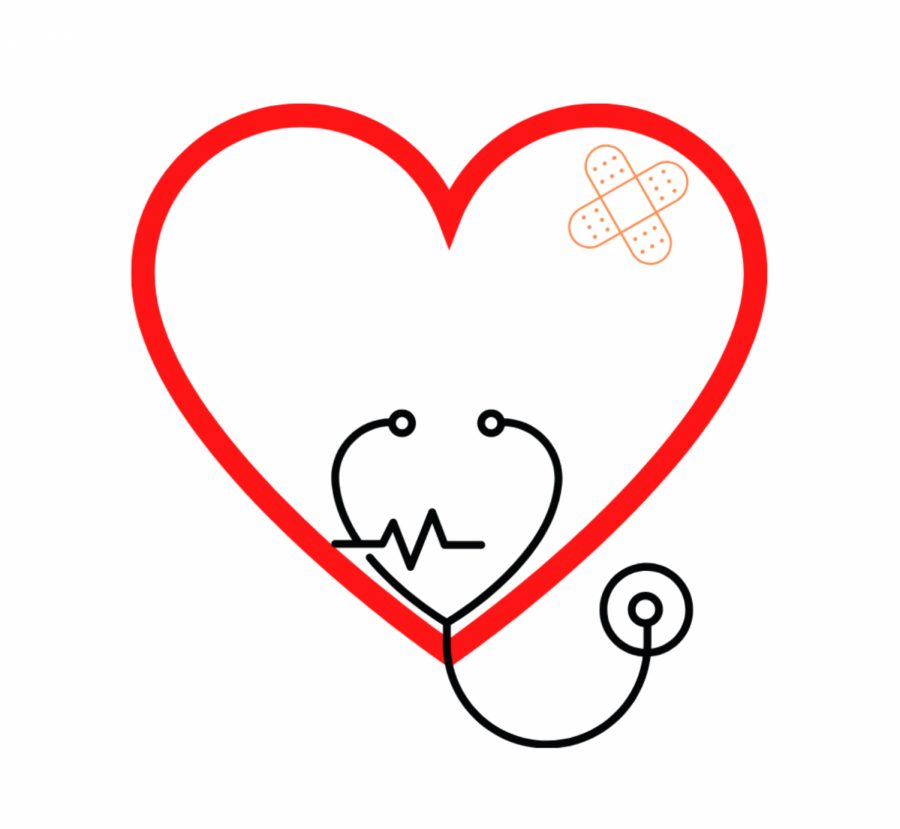3 health issues college students face and how to control them
College is a stressful time for students but it can become dangerous when students don’t value their health. Some of the most common health concerns students struggle with include, but are not limited to, the Common Cold, the Flu, Sexually Transmitted Diseases, and Mental Health. Here are some ways that you can make sure that you are staying safe:
The Common Cold and The Flu
A runny nose, sore throat and sneezing is something many students have had to deal with. Cooler temperatures with dry air allow for the virus to travel easily, which is why fall and winter seasons see so many cases.
College campuses are a “hot zone” for the common cold according to a Schiffert Health center report. Students are often in close proximity and spend a lot of time together. The CDC suggests that you must wash your hands often and avoid touching your eyes, nose or mouth. The virus can live on your hands, so make sure to wash your hands for at least 20 seconds with soap and hot water. Frequently touched places such as doorknobs, phones, wallets and electronics should be disinfected often in order to prevent the spread of germs from the surface to yourself or others. It’s important that if you feel sick at all, to avoid going out and having close contact with others.
We all know about flu season, that time of the year when everyone gets sick. Just like the Common Cold, the flu thrives in cool weather with dry air like in the winter and fall seasons. The CDC recommends that you get the flu shot annually, as soon as it becomes available. It’s very important that you try to avoid close contact with people, especially if they are coughing or sneezing.
The University Health Center’s statement said, “Flu and other illnesses are at their peak. You are advised to stay home or residence hall and avoid contact with others until you are fever-free for 24 hours.” The CDC once again reports that hand washing, as well as not touching your mouth, nose and eyes, are some of the best ways for you to keep yourself healthy during flu season.
Sexually Transmitted Diseases
The stigma behind them is deeply rooted, but they are more common than most people think. In 2016, the CDC reported that in the past year, 2.5 percent of students found out that they had an STD and five percent of them reported being discriminated against because of that. In fact, CapRock Health System wrote that over half of the new STI cases every year come from young people from ages 15-24, totaling around 10 million of the people diagnosed with them yearly.
There are a few ways that you can protect yourself without having to abstain from sex all together. The CDC recommends getting vaccinated against HPV as well as always using condoms. They report that a male latex condom “is highly effective in reducing STD transmission.”
The University Health Center does supply male condoms if students need them or you could purchase them from C-Store. Birth control methods such as the pill or the IUD do not prevent STDs, merely preventing pregnancy. It is advised that if you have multiple sexual partners, you should talk to them about their sexual history and make sure both of you have been previously tested. If you need to find a location to be tested, the CDC has a site called GetTested. The CapRock Health System says that this site finds free, confidential, and fast testing near you. Overall, to keep safe you should get tested frequently, have clear communication with your partners and use condoms.
Mental Illness
The Zebra said that over 25 percent of college students have had to be treated for a mental illness that they were diagnosed with. College can be difficult for students because there are a lot of stressful moments and students can often find themselves losing motivation. Furthermore, the article explained that depression can impact a student’s studies; in fact, over 20 percent of students said that it did.
Not everyone is comfortable talking to a professional; there are other ways to cope. TimelyMD says that some of the best ways to help yourself include getting adequate sleep, improving your nutrition and dietary habits, avoiding drugs and alcohol and utilizing mindfulness practices. They said that “Getting enough sleep allows the body to recover which helps keep a person mentally and physically healthy.”
Studying can leave students getting very little sleep, but you should try to get between seven to nine hours per the National Sleep Foundation. Making healthy choices can be difficult, but by maintaining a good sleep schedule as well as getting the recommended nutrients, anxiety and depression can become easier to cope with.
Using drugs and alcohol to cope with your struggles may seem helpful, but as TimelyMD said, they “may work for short-term relief, but will make symptoms worse in the long run and should be avoided.” Instead of using unhealthy coping mechanisms, it is suggested that students practice mindfulness and living in the moment. This can be done through meditation, different breathing strategies and even activities like yoga. For students who continue to struggle, seeking help from a psychiatrist can be beneficial. These are health professionals that can assess the problems you are having and prescribe medicine to help. Mental illnesses like anxiety and depression can be hard to work through, but with proper coping strategies, they can become much more manageable.
On campus, the Counseling and Psychological Services office (CAPS) provides “individual counseling, support group offerings, group counseling, support and consultation services and medication management.” They are available 24/7 at the phone number 203-932-7333 if you need support.




